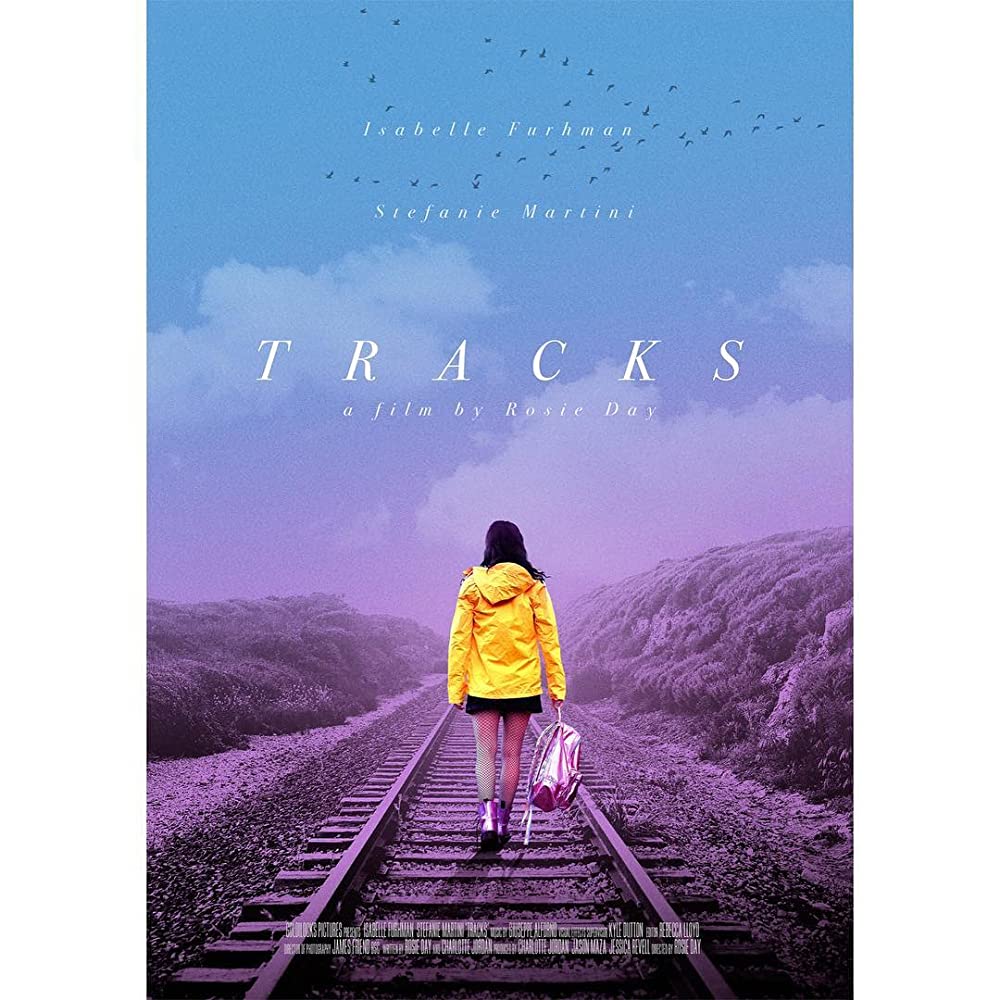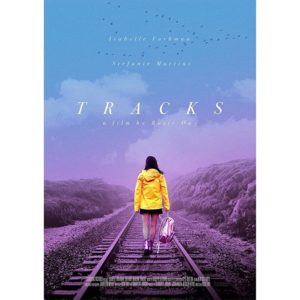
Short Film Review “Tracks”
NO TRAILER CURRENTLY AVAILABLE
First, the Recap:
What occurs when facts thought lost to time become known in a most discordant way? Processing the weight of events that have shaped us for the worst as opposed to the better is hard enough, trying our best to deal with all the myriad of ramifications said circumstances have wrought while likewise searching for an inner peace we feel might never be present again. Furthermore, what then happens when an avenue of release might turn into an even harsher reminder of that which is already consuming us, yet somehow elicit healing? It is a simple train ride and innocuous factors that bring two young women, Martha (Isabelle Fuhrman) and Dilly (Stefanie Martini), into each others circle, sparking a candid conversation that will tell the tale of hurts, desired retribution, and stark revelations that will shake one of them to the core.
Next, my Mind:
In this critic’s experiences within the indie film ranks around the world, there stands one facet of the filmmaking process that remains paramount to, ideally, attain–if you’re making your directorial debut, do so by making the biggest splash possible, with the highest level of quality achievable, with the greatest group of people you have available, and with an attitude and purpose that will ensure one absolute statement is being made–“Watch out, world, here I am!”. I must say that this is so unequivocally true and successfully accomplished through the 15-minute short film effort from British actress (“Outlander”, “Down A Dark Hall” among MANY other projects) turned writer/director Rosie Day , who deftly presents an emphatic declaration about the notion of ones past, the pains it holds, it’s life-altering consequences, and the potency of a calculated effort to be free of it all in order to move forward with some semblance of solace.
Delivered through the perspective of an emotionally distant, evidently haunted woman taking a local train to who knows where in her attempts to escape the apparent unsettled condition of her soul, occurrences come about that put her in contact with a fellow passenger through a random act of kindness. As she and her new travel companion venture into an initially awkward dialogue, it becomes more and more conspicuous how uncomfortable it is for one while the other is free-spirited and open. But, what the film then does with stunning precision is to allow the parley to take on an at first interrupted tempo which ultimately turns into a full-on, albeit still hesitant on one of the women’s part, discussion about each of their current states of being, why they’re traveling, where they’re going, and what is hoped to be discovered at the end of each road.
The underlying tension that builds between them, even if not clearly voiced or explained, is masterfully presented, and it provides us as the viewer that excellent sense of being pulled along in a direction we have NO idea where it is going beyond what we see on the surface. This in turn only makes the jarring, unexpected, and total stroke of genius that is the narrative’s finale smack you in the face and drive home with blatant influence the thematic explorations being delved into here, again dealing with hidden despair and other raw, highly emotional realities that infuse the film with its depth of impact upon revealing what it does about these two women. It also becomes about standing firm for who you really are, not allowing others’ perceptions of you to dictate your paths, much less the challenge encountered in facing our demons head on in order to let go and move forward while also allowing others to listen and encourage instead of being prisoner to guilt, shame, and inner torment, which we as human beings so often excel at, unfortunately.
It’s this formidable volatility found in being utterly transparent with a total stranger as well that lends yet more necessary vigor and effectiveness to the story’s intent and execution here, which I felt was another grounded, real-world, smartly conceived facet of this effort that will cause you to think about just how much ripple effect actions can have, their reverberations felt long after an incident itself has been experienced. I also felt the film addresses ideas about relationships, their pitfalls, and patterns of abuse (whether physical or mental) that are such, sadly, prevalent in our contemporary world but NO less relevant to touch on, and hence why I always appreciate the boldness of indie filmmakers to not shy away from harsh truths even within the context of a fictional story, as it doesn’t negate the actuality of these elements or the need to have stable, reliable avenues to deal with them. Dramatic effect may have been the direction here, to amazingly rendered results I might add again, but it’s nothing to just let pass by in our current world state.
Now we get to the excellence that are the performances here, and I don’t say this lightly. For Fuhrman, after exuding the intense menace of Esther in “Orphan” and the ruthless efficiency of Clove in “The Hunger Games”, here we are treated to an exercise in magnificently intentional understatement in acting via her role as Martha, a woman clearly on the edge, yet quietly so beyond the consistently pensive demeanor she conveys. As her newly formed connection with Dilly begins to manifest, it becomes even more clear that Martha’s willingness to confront the past is not present, yet she opens up to an extent that allows her to gain needed closure to her own situation that is as strategic as it is arresting. Enacted with an engaging and divinely skilled, stirringly expressive subtlety that makes the film’s final moment resonate with profound impact, it showcases Fuhrman’s diversity in her art, carried off with total grace and poise.
In a completely different but by no means less compelling or proficient manner, Martini (“Prime Suspect 1973”, “Crooked House”, “The Last Kingdom”) likewise gets to draw us in via very well-played utilization of muted acting in her role as Dilly, a seemingly happy-go-lucky woman whose cheeky, mildly intense, argumentative encounter with the train’s ticket taker initiates her meeting Martha through the aforementioned act of kindness she is shown by her now new travel mate. As Dilly seems more than open to share her life circumstances and purpose for the trip without really thinking anything of it, her manner slowly wins over the far more reluctant, struggling Martha to the extent she becomes privy to all the hurts Martha is facing. Offering what she hopes is soothing advice and mutually shared opinions on a certain subject, it makes for the fantastically presented ending I’ve alluded to above multiple times, and Martini’s body language and overall performance in the build up to this is grounded, wholly believable, and sincere.
The only supporting appearance is made by Emun Elliott (“Prometheus”, “Star Wars: The Force Awakens”) as the train’s ticket taker and subsequent (playfully so) whipping boy Carl. Also, I must make it a point to give a shout out to the film’s composer and director’s sister, Sophie Day, for the evocative piano piece that frames the film’s end credits with a highly apropos, emotionally-charged atmosphere to cap the effort. In total, “Tracks” is precisely what indie film in its finest form is all about–superb, character-driven storytelling and fresh approaches to oft explored concepts. Day has certainly made the needed statement for this critic as articulated above while definitively making the case for more opportunities for women to be behind the camera. Let’s hope this isn’t the last we’ve heard from a “one to watch” in independent cinema’s ever-expanding arena.
As always, this is all for your consideration and comment. Until next time, thank you for reading!







Although this review seems to maintain that the ending will turn all on its head and stun the viewer, I predicted as soon as the two women met what common factor binds them, and I was proven right.